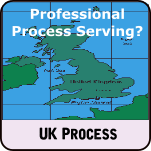
The use of the Polygraph in a professional investigation
 The use of the Polygraph in a professional investigation
The use of the Polygraph in a professional investigation
The use of polygraph tests in a professional investigation can be a powerful tool for uncovering information from witnesses. Polygraphs are not 100% accurate, but they provide investigators with valuable insight that could lead to critical breakthroughs in difficult investigations.
A well-trained investigator will know how to properly administer and interpret the results of polygraph testing and use it strategically within their overall investigation strategy.
In this blog post, we’ll explore the advantages and disadvantages of using polygraphs during an investigation, review best practices for administering polygraph tests, and discuss what techniques can help ensure reliable outcomes when utilising this investigative tool.
 What is a polygraph and why it is used in a professional investigation?
What is a polygraph and why it is used in a professional investigation?
A polygraph, also known as a lie detector, is a device that measures physiological responses when a person is asked a series of questions. These responses include changes in blood pressure, pulse rate, respiration, and skin conductivity.
Polygraphs are often used in professional investigations, particularly in law enforcement and government settings, to determine the veracity of statements made by individuals involved in a case.
While the accuracy of polygraph tests has been debated, they remain a valuable tool in investigations, providing additional information for investigators to consider when piecing together their cases.
 How to choose the best polygraph examiner for your case?
How to choose the best polygraph examiner for your case?
Choosing the right polygraph examiner for your case can be a daunting task, but it is essential to ensure the success of any investigation. A professional and experienced examiner can make all the difference in the accuracy and reliability of the results, which can heavily influence the outcome of the case.
Firstly, look for an examiner who is accredited and licensed, in the UK we have the UK Polygraph Association.
This demonstrates their expertise and compliance with industry standards. Additionally, seek out an examiner who possesses strong analytical and communication skills, as they will be able to effectively conduct the examination and explain the results to both the client and the court. It is also important to find an examiner who specialises in the type of case you are presenting, as they will have relevant knowledge and experience that can strengthen the investigation.
Taking the time to carefully select the right polygraph examiner will not only ensure the credibility of the investigation but also increase the likelihood of achieving successful results. One such company is Lie Detectors UK, owned by Jason Hubble a UKPA Director.
 Advantages and disadvantages of using a polygraph in an investigation
Advantages and disadvantages of using a polygraph in an investigation
The use of a polygraph, or lie detector test , in investigations can provide both advantages and disadvantages.
On the one hand, a polygraph can help elicit important information from witnesses or suspects that may not have been obtained otherwise. It can also be a valuable tool in gaining confessions or identifying potential leads.
However, the accuracy of the polygraph has been subject to much debate, with some experts believing that it is not a reliable measure of truthfulness. Additionally, the use of a polygraph can sometimes be viewed as coercive, leading to false confessions and potential violations of civil liberties.
Ultimately, the decision to use a polygraph in an investigative process should be carefully evaluated on a case-by-case basis, taking into account both its potential benefits and drawbacks.
However, in the UK the largest user of the polygraph is the UK Government with over 70 examiners, running thousands of tests a year on sex offenders.
 The legal implications of using a polygraph as evidence in court
The legal implications of using a polygraph as evidence in court
The use of polygraph tests as evidence in court has been a subject of much debate in the legal system.
While some argue that the results of a polygraph test can be a valuable tool to aid in the decision-making process of a judge or jury, others argue that the results are unreliable and subjective.
Ultimately, the admissibility of polygraph evidence varies depending on the jurisdiction and the circumstances of the case.
In some areas, the results may be admitted as evidence if agreed upon by both parties, while in others, they may be completely inadmissible. As such, it is crucial to consult with an experienced attorney to understand the legal implications of using a polygraph test as evidence in your particular case.
 Tips for getting accurate results from your polygraph test
Tips for getting accurate results from your polygraph test
If you are scheduled for a polygraph test, it is important to prepare yourself both mentally and physically.
Before the test, avoid consuming any substances that could affect your ability to remain calm and focused, such as caffeine or alcohol. Additionally, be honest with the examiner about any medications you may be taking.
During the test, remain calm and breathe evenly, avoiding any sudden movements.
Answer questions truthfully and to the best of your ability. It is normal to feel nervous during a polygraph test, but following these tips can help ensure that you receive accurate results.
Remember to trust in the professionalism of the examiner and the accuracy of the test.
While polygraph tests can provide useful information in a professional investigation, they should be used carefully and thoughtfully. It is important to remember that polygraph results are not admissible in court due to the unreliability of the results.
Therefore, it is essential to choose an experienced polygraph examiner with extensive knowledge and training in this type of testing. Ultimately, understanding when and how to use a polygraph is key for any professional investigator wishing to produce reliable results from their examination.
By following the tips outlined in this blog post, such as appropriate preparation for the test taker, ensuring the conditions of the testing room remain consistent throughout the examination process, and properly maintaining the equipment being used for testing, any professional investigative team can achieve accurate results from their polygraph tests.
 Article written by Jason Hubble APA UKPA NPA, Chief Polygraph Examiner at
Lie Detectors UK
Article written by Jason Hubble APA UKPA NPA, Chief Polygraph Examiner at
Lie Detectors UK






